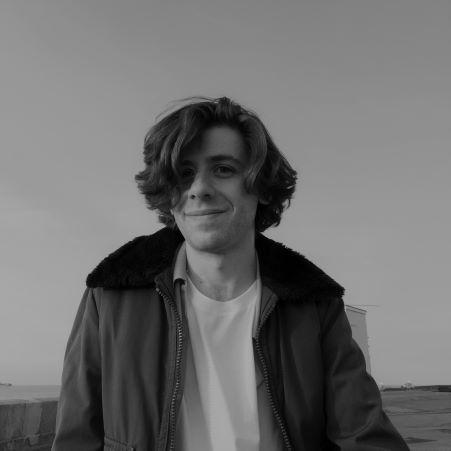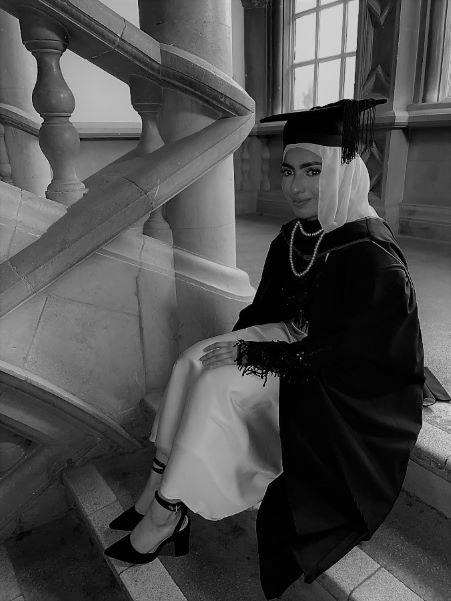-
ALUMNI SPOTLIGHT - DOMINIC REILLY (PHD IN PSYCHOLOGY, BIRKBECK, 2016 TO 2019)
October 2022 Newsletter - click on the arrow for more
October 18, 2022
“My name is Dominic Reilly. I was a Bonnart Trust PhD scholar between 2016 and 2019.”
What was your research about, at the time of your scholarship with the Bonnart Trust?
“My research proposal was about so called racial ‘preferences’ in sex and romantic relationships, something that I quickly came to reformulate as the racialisation of desire and sexuality. My starting point was the hook-up and dating app Grindr - which is used by men who have sex with men - and launched in 2009 and quickly became a sight of which racialised sexualities were asserted and contested and in various ways, produced and re-produced. I was interested in the ways in which race gets into sexuality, and how race and sexuality sustain each other. I’m particularly interested in the lived experience of these things. To that end, I proposed to interview people who self-identified as having a racialised sexuality, as well as analysing Grindr profiles and reading lots of theory about race, sexuality and their intersections.”
How has the Bonnart Trust impacted on your life/studies?
“The Bonnart Trust has impacted my life in numerous ways. Firstly, it gave me the time, space and freedom to be able to immerse myself fully in my research for three years, without the financial pressures of having to work full time. It also provided me with a community - both intellectual and pastoral - which I think is something that’s particularly important for postgraduate students. Doing a PhD in particular can get quite lonely, it can be quite a slog at times. It’s also provided a fantastic alumni network, and there are events every year that you can attend, and meet present and former scholars, and find out what everybody is up to, and how they’re applying their research. Lastly, it provided me with a platform and a financial impetus to write a report about my research, which was a great opportunity to think about what I could extract from my research, for different audiences.”
-
SPOTLIGHT - DR BRENDAN MCGEEVER (SENIOR LECTURER, DEPARTMENT OF PSYCHOSOCIAL STUDIES, BIRKBECK)
October 2022 Newsletter - Click on the arrow for more
October 18, 2022
“My name is Brendan McGeever. I’m a Senior Lecturer in Sociology, here at Birkbeck. I teach in the department of Psychosocial studies, and I also do work in the Birkbeck Institute for the study of antisemitism.”
How important is it that students think about the applications of their research?
“I think it’s very important actually. We live in a world that’s in crisis. It’s a crisis of climate, health, of economy, and of politics. If we look around us, I think we can all agree that this is a world that’s in need of change. And rigorous, serious, academic research can be part of that change, and in certain circumstances can be harnessed in a transformative and progressive direction. I think it’s very important that doctoral students and Masters students think about the way in which their research connects with the real world, and can possibly work towards the changing of that world as well.”
Is it common practice for funding bodies to encourage students to think about applying their research, or is Bonnart doing something unusual?
“I think it’s both familiar and strange. I’ll start with the first one. In academia, time and again these days, we’re told about the importance of impact, as academics, and to think about the way in which our research can have an impact in the world. So it’s no surprise to me that students now are being encouraged to think that way too. But it’s also strange and unfamiliar as well what the Bonnart Trust is doing. This focus that the Trust has on equality, on inclusivity and perhaps even antiracism strikes me not only as vital and important but also unique and very special, and something we need to protect in these dangerous and uncertain times.“
-
NEW SCHOLAR SPOTLIGHT - DAN LEVY (MA STUDENT IN CULTURE, DIASPORA, ETHNICITY, BIRKBECK, 2022 TO 2024)
October 2022 Newsletter
October 18, 2022

Dan Levy is an MA student in Culture, Diaspora, Ethnicity at Birkbeck, University of London.
He began his studies in October 2022 and is interested in ways of communicating shared histories of marginisalisation between minority communities, and how doing so can form the basis for greater solidarity. He is interested in asking what factors shape our understanding of ‘solidarity’ and whether there are any limitations to working across difference. He is then motivated by the question of if/how they can be overcome.
He is also particularly curious about the East End’s radical Jewish history in the late 19th/early 20th Century, as well as the resurgence of the Jewish Labour Bund in the popular imagination.
Dan’s completed his BA in Philosophy at UCL in 2019. Since graduating, he has worked in film programming, literary publishing, and as a freelance researcher for charities and social enterprises.
He also serves on the advisory board for JW3’s youth engagement programme, Young JW3.
-
NEW SCHOLAR SPOTLIGHT - MAISHA RIYAH (MA STUDENT IN CULTURE, DIASPORA, ETHNICITY, BIRKBECK, 2022 TO 2024)
October 2022 Newsletter
October 18, 2022

Maisha Riyah is an MA student in Culture, Diaspora, Ethnicity at Birkbeck University of London. Her research will examine racialised and marginalised communities in the UK and their relation to colonialism and imperialism.
Maisha completed her BA in Politics and International Relations from Royal Holloway, University of London in 2021. Her undergraduate dissertation focused on decolonising the curriculum and how it contributes to a global International Relations. After the completion of her BA, she spent two years working for Royal Holloway and a year working in a Sixth form/secondary school teaching Politics and History.
Currently, she works full time as a Peer Support Co-ordinator under the Haringey Wellbeing Network service for the mental health charity Mind in Haringey, managing and leading the development and delivery of two models of peer support services in the borough of Haringey.
Maisha would like to increase awareness about the colonial history and deep-rooted structural racism that has strongly affected marginalised communities with their mental health and the prevalence of generational trauma that has been passed down to the younger generations.
In her spare time, Maisha enjoys outdoor activities, walking and café hopping and trying out different countries’ cuisines and loves reading and films.
-
Video interview with Dominic Reilly, Alumni, PhD in Psychology, Birkbeck, 2016 to 2019
October 11, 2022
“My name is Dominic Reilly. I was a Bonnart Trust PhD scholar between 2016 and 2019.”
What was your research about, at the time of your scholarship with the Bonnart Trust?
“My research proposal was about so called racial ‘preferences’ in sex and romantic relationships, something that I quickly came to reformulate as the racialisation of desire and sexuality. My starting point was the hook-up and dating app Grindr - which is used by men who have sex with men - and launched in 2009 and quickly became a sight of which racialised sexualities were asserted and contested and in various ways, produced and re-produced. I was interested in the ways in which race gets into sexuality, and how race and sexuality sustain each other. I’m particularly interested in the lived experience of these things. To that end, I proposed to interview people who self-identified as having a racialised sexuality, as well as analysing Grindr profiles and reading lots of theory about race, sexuality and their intersections.”
How has the Bonnart Trust impacted on your life/studies?
“The Bonnart Trust has impacted my life in numerous ways. Firstly, it gave me the time, space and freedom to be able to immerse myself fully in my research for three years, without the financial pressures of having to work full time. It also provided me with a community - both intellectual and pastoral - which I think is something that’s particularly important for postgraduate students. Doing a PhD in particular can get quite lonely, it can be quite a slog at times. It’s also provided a fantastic alumni network, and there are events every year that you can attend, and meet present and former scholars, and find out what everybody is up to, and how they’re applying their research. Lastly, it provided me with a platform and a financial impetus to write a report about my research, which was a great opportunity to think about what I could extract from my research, for different audiences.”
The trust can be reached by email on kerryann@bonnart.org
Please note that The Bonnart Trust and trustees do not consider direct applications.
The Trust is a registered UK Charity and is governed by five volunteer Trustees and an administrator.
Copyright The Bonnart Trust (Frederick Bonnart-Braunthal Trust). UK Registered Charity Number 1094967